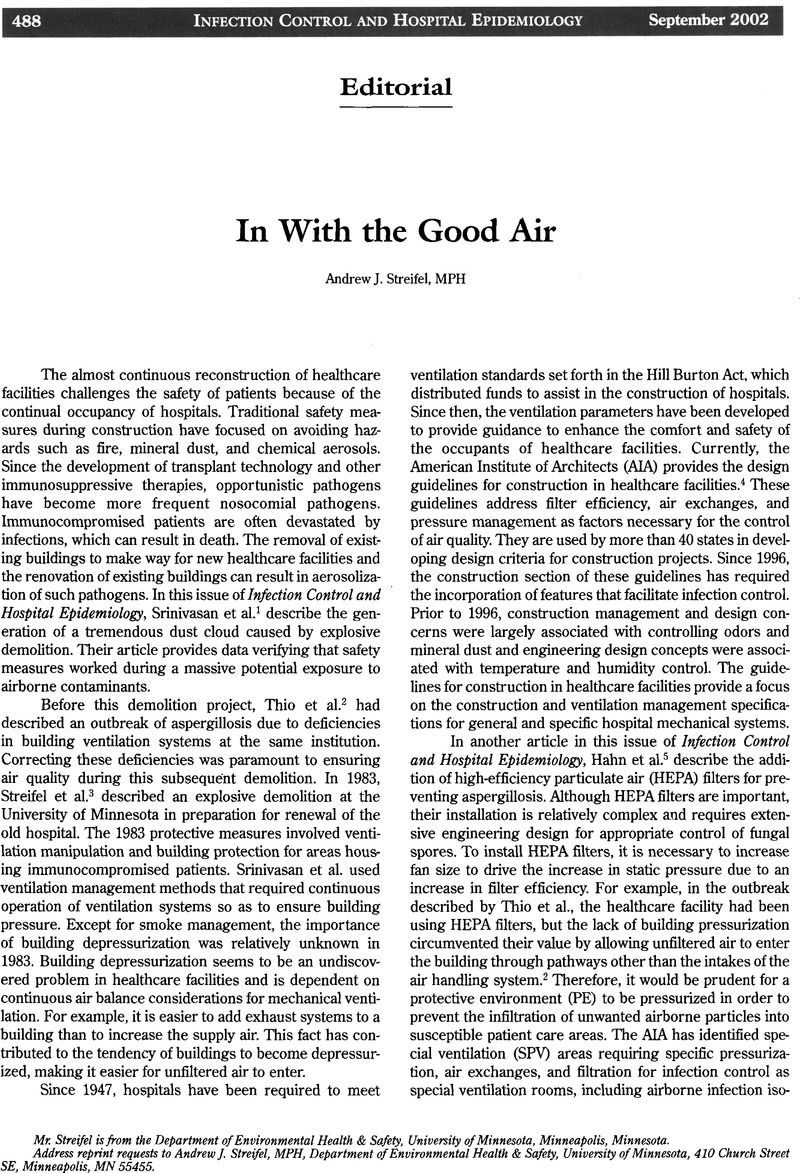Crossref Citations
This article has been cited by the following publications. This list is generated based on data provided by Crossref.
Humphreys, H
2004.
Positive-pressure isolation and the prevention of invasive aspergillosis. What is the evidence?.
Journal of Hospital Infection,
Vol. 56,
Issue. 2,
p.
93.
Chang, C. C.
Athan, E.
Morrissey, C. O.
and
Slavin, M. A.
2008.
Preventing invasive fungal infection during hospital building works.
Internal Medicine Journal,
Vol. 38,
Issue. 6b,
p.
538.
Chang, C.C.
Cheng, A.C.
Devitt, B.
Hughes, A.J.
Campbell, P.
Styles, K.
Low, J.
and
Athan, E.
2008.
Successful control of an outbreak of invasive aspergillosis in a regional haematology unit during hospital construction works.
Journal of Hospital Infection,
Vol. 69,
Issue. 1,
p.
33.
2010.
Anforderungen an die Hygiene bei der medizinischen Versorgung von immunsupprimierten Patienten.
Bundesgesundheitsblatt - Gesundheitsforschung - Gesundheitsschutz,
Vol. 53,
Issue. 4,
p.
357.
Chang, C. C.
Ananda‐Rajah, M.
Belcastro, A.
McMullan, B.
Reid, A.
Dempsey, K.
Athan, E.
Cheng, A. C.
and
Slavin, M. A.
2014.
Consensus guidelines for implementation of quality processes to prevent invasive fungal disease and enhanced surveillance measures during hospital building works, 2014.
Internal Medicine Journal,
Vol. 44,
Issue. 12b,
p.
1389.



